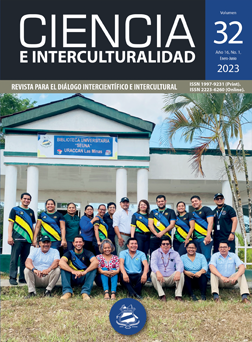Attitudes towards the practice of interculturality: An instrument for its measurement
Abstract
In this research, an instrument has been designed to measure attitudes toward the practice of interculturality. This is an instrumental research through a sequential methodological process supported by a review of the literature, content validity, and reliability analysis (correlation analysis, exploratory factor analysis, and reliability of the instrument). The results show that the factorial exploration (KMO=0.818; Chi-square=1242.718; gl=300; Sig.<0.000; D=6.338E-9) defined an instrument with three-dimensional factors (affective, cognitive and behavioral) consolidated in 25 items with a discrimination in the category of very good, likewise, a highly favorable internal consistency (α=0.93; ω=0.93; λ2=95); and statistically significant correlations between the factors with a greater relationship between the cognitive and behavioral dimensions. It is concluded that the scale of attitude towards the practice of interculturality contributes to inquiry about the affective, cognitive, and behavioral processes that are manifested in the intercultural classroom, therefore, in the inter-learning of the students.
Downloads

This work is licensed under a Creative Commons Attribution-NonCommercial-NoDerivatives 4.0 International License.
El autor mantiene los derechos morales y permite la cesión gratuita, exclusiva y por plazo indefinido de sus derechos patrimoniales de autoría a la Universidad de las Regiones Autónomas de la Costa Caribe Nicaraguense (URACCAN).






